afterLoad (456.22KB) (5.91ms)
afterInitialise (1.27MB) (62.22ms)
afterRoute (840.55KB) (23.39ms)
beforeRenderComponent com_tags (20.62KB) (332μs)
afterRenderComponent com_tags (1.35MB) (188ms)
afterDispatch (27.48KB) (4.74ms)
beforeRenderRawModule mod_articles_category (READ MORE...) (439.86KB) (29.76ms)
Before Access::preloadComponents (all components) (50.9KB) (3.26ms)
After Access::preloadComponents (all components) (103.05KB) (4.59ms)
Before Access::getAssetRules (id:8 name:com_content) (840B) (31μs)
After Access::getAssetRules (id:8 name:com_content) (7.05KB) (59μs)
afterRenderRawModule mod_articles_category (READ MORE...) (11.93KB) (303ms)
beforeRenderRawModule mod_custom (BOOST YOUR IMMUNE DEFENSE) (6.45KB) (45μs)
afterRenderRawModule mod_custom (BOOST YOUR IMMUNE DEFENSE) (3.8KB) (298μs)
beforeRenderRawModule mod_tags_popular (Search) (2.36KB) (16μs)
afterRenderRawModule mod_tags_popular (Search) (2.58KB) (366ms)
beforeRenderRawModule mod_custom (Get additionel and more detailed knowledge ) (816B) (41μs)
afterRenderRawModule mod_custom (Get additionel and more detailed knowledge ) (1.55KB) (76μs)
beforeRenderRawModule mod_custom (Overview of vitamins, minerals, and essential fatty acids) (768B) (11μs)
afterRenderRawModule mod_custom (Overview of vitamins, minerals, and essential fatty acids) (960B) (25μs)
beforeRenderRawModule mod_custom (Q10 goes by many names) (608B) (10μs)
afterRenderRawModule mod_custom (Q10 goes by many names) (928B) (19μs)
beforeRenderRawModule mod_custom (Check this before you buy a Q10 product) (752B) (9μs)
afterRenderRawModule mod_custom (Check this before you buy a Q10 product) (944B) (19μs)
beforeRenderRawModule mod_custom (Are you taking supplements) (736B) (9μs)
afterRenderRawModule mod_custom (Are you taking supplements) (1.03KB) (18μs)
beforeRenderRawModule mod_custom (Weight loss that works) (736B) (9μs)
afterRenderRawModule mod_custom (Weight loss that works) (1.03KB) (18μs)
beforeRenderRawModule mod_custom (Antiaging) (720B) (9μs)
afterRenderRawModule mod_custom (Antiaging) (912B) (17μs)
beforeRenderRawModule mod_menu (Are you getting enough vitamins and minerals?) (2.5KB) (13μs)
afterRenderRawModule mod_menu (Are you getting enough vitamins and minerals?) (22.39KB) (1.26ms)
beforeRenderRawModule mod_menu (The key to increased well-being) (736B) (32μs)
afterRenderRawModule mod_menu (The key to increased well-being) (17.83KB) (1.55ms)
beforeRenderRawModule mod_menu (Did you know.....) (720B) (23μs)
afterRenderRawModule mod_menu (Did you know.....) (25.52KB) (333μs)
beforeRenderRawModule mod_custom (Useful Links) (1.06KB) (15μs)
afterRenderRawModule mod_custom (Useful Links) (1.02KB) (36μs)
beforeRenderRawModule mod_custom (Chronic fatigue tied Alan to his bed but Q10 capsules saved him:) (244.28KB) (8.96ms)
afterRenderRawModule mod_custom (Chronic fatigue tied Alan to his bed but Q10 capsules saved him:) (1.06KB) (53μs)
beforeRenderModule mod_custom (Chronic fatigue tied Alan to his bed but Q10 capsules saved him:) (768B) (5μs)
afterRenderModule mod_custom (Chronic fatigue tied Alan to his bed but Q10 capsules saved him:) (1.3KB) (7.19ms)
beforeRenderRawModule mod_custom (Cholesterol-lowering without side effects:) (368B) (34μs)
afterRenderRawModule mod_custom (Cholesterol-lowering without side effects:) (1.06KB) (53μs)
beforeRenderModule mod_custom (Cholesterol-lowering without side effects:) (752B) (3μs)
afterRenderModule mod_custom (Cholesterol-lowering without side effects:) (1.28KB) (59μs)
beforeRenderModule mod_articles_category (READ MORE...) (20.82KB) (449μs)
afterRenderModule mod_articles_category (READ MORE...) (1.25KB) (67μs)
beforeRenderModule mod_custom (BOOST YOUR IMMUNE DEFENSE) (6.81KB) (14μs)
afterRenderModule mod_custom (BOOST YOUR IMMUNE DEFENSE) (1.28KB) (27μs)
beforeRenderModule mod_tags_popular (Search) (1.98KB) (12μs)
afterRenderModule mod_tags_popular (Search) (1.27KB) (23μs)
beforeRenderModule mod_custom (Get additionel and more detailed knowledge ) (1.17KB) (10μs)
afterRenderModule mod_custom (Get additionel and more detailed knowledge ) (1.3KB) (21μs)
beforeRenderModule mod_custom (Overview of vitamins, minerals, and essential fatty acids) (384B) (10μs)
afterRenderModule mod_custom (Overview of vitamins, minerals, and essential fatty acids) (1.31KB) (22μs)
beforeRenderModule mod_custom (Q10 goes by many names) (208B) (8μs)
afterRenderModule mod_custom (Q10 goes by many names) (1.27KB) (22μs)
beforeRenderModule mod_custom (Check this before you buy a Q10 product) (352B) (10μs)
afterRenderModule mod_custom (Check this before you buy a Q10 product) (1.28KB) (20μs)
beforeRenderModule mod_custom (Are you taking supplements) (352B) (9μs)
afterRenderModule mod_custom (Are you taking supplements) (1.28KB) (3.07ms)
beforeRenderModule mod_custom (Weight loss that works) (336B) (25μs)
afterRenderModule mod_custom (Weight loss that works) (1.27KB) (48μs)
beforeRenderModule mod_custom (Antiaging) (336B) (11μs)
afterRenderModule mod_custom (Antiaging) (3.77KB) (25μs)
beforeRenderModule mod_menu (Are you getting enough vitamins and minerals?) (2.13KB) (13μs)
afterRenderModule mod_menu (Are you getting enough vitamins and minerals?) (1.3KB) (22μs)
beforeRenderModule mod_menu (The key to increased well-being) (352B) (10μs)
afterRenderModule mod_menu (The key to increased well-being) (1.28KB) (22μs)
beforeRenderModule mod_menu (Did you know.....) (336B) (10μs)
afterRenderModule mod_menu (Did you know.....) (1.27KB) (21μs)
beforeRenderModule mod_custom (Useful Links) (1.44KB) (9μs)
afterRenderModule mod_custom (Useful Links) (1.27KB) (21μs)
beforeRenderRawModule mod_menu (Main Menu - English) (29.14KB) (3.98ms)
afterRenderRawModule mod_menu (Main Menu - English) (186.95KB) (8.1ms)
beforeRenderModule mod_menu (Main Menu - English) (720B) (8μs)
afterRenderModule mod_menu (Main Menu - English) (4.86KB) (88μs)
beforeRenderRawModule mod_languages (Sprogskift) (3.94KB) (25μs)
afterRenderRawModule mod_languages (Sprogskift) (28.06KB) (8.97ms)
beforeRenderModule mod_languages (Sprogskift) (720B) (7μs)
afterRenderModule mod_languages (Sprogskift) (5.31KB) (24μs)
beforeRenderRawModule mod_finder () (6.34KB) (14μs)
afterRenderRawModule mod_finder () (128.59KB) (12.12ms)
beforeRenderModule mod_finder () (704B) (7μs)
afterRenderModule mod_finder () (3.29KB) (44μs)
beforeRenderRawModule mod_custom () (6.62KB) (165μs)
afterRenderRawModule mod_custom () (22.64KB) (8.62ms)
beforeRenderModule mod_custom () (704B) (10μs)
afterRenderModule mod_custom () (1.23KB) (76μs)
beforeRenderRawModule mod_menu (Main Menu - English) (5.07KB) (1.42ms)
afterRenderRawModule mod_menu (Main Menu - English) (6.3KB) (2.44ms)
beforeRenderModule mod_menu (Main Menu - English) (720B) (8μs)
afterRenderModule mod_menu (Main Menu - English) (1.25KB) (80μs)
beforeRenderRawModule mod_languages (Sprogskift Mobil) (912B) (29μs)
afterRenderRawModule mod_languages (Sprogskift Mobil) (3.89KB) (2.89ms)
beforeRenderModule mod_languages (Sprogskift Mobil) (720B) (9μs)
afterRenderModule mod_languages (Sprogskift Mobil) (1.27KB) (50μs)
beforeRenderRawModule mod_finder () (2.3KB) (16μs)
afterRenderRawModule mod_finder () (6.29KB) (4.85ms)
beforeRenderModule mod_finder () (704B) (7μs)
afterRenderModule mod_finder () (1.23KB) (69μs)
beforeRenderRawModule mod_custom () (8.66KB) (237μs)
afterRenderRawModule mod_custom () (904B) (192μs)
beforeRenderModule mod_custom () (704B) (3μs)
afterRenderModule mod_custom () (2.43KB) (29μs)
beforeRenderRawModule mod_custom () (688B) (85μs)
afterRenderRawModule mod_custom () (896B) (1.01ms)
beforeRenderModule mod_custom () (704B) (8μs)
afterRenderModule mod_custom () (2.71KB) (52μs)
afterRender (277.43KB) (32.69ms)
| 1 x afterRenderRawModule mod_tags_popular (Search) (2.58KB) (32.88%) | 365.81ms |
| 1 x afterRenderRawModule mod_articles_category (READ MORE...) (11.93KB) (27.25%) | 303.25ms |
| 1 x afterRenderComponent com_tags (1.35MB) (16.9%) | 188.07ms |
| 1 x afterInitialise (1.27MB) (5.59%) | 62.22ms |
| 1 x afterRender (277.43KB) (2.94%) | 32.69ms |
| 1 x beforeRenderRawModule mod_articles_category (READ MORE...) (439.86KB) (2.67%) | 29.76ms |
| 1 x afterRoute (840.55KB) (2.1%) | 23.39ms |
| 1 x afterRenderRawModule mod_finder () (128.59KB) (1.09%) | 12.12ms |
| 1 x afterRenderRawModule mod_languages (Sprogskift) (28.06KB) (0.81%) | 8.97ms |
| 1 x beforeRenderRawModule mod_custom (Chronic fatigue tied Alan to his bed but Q10 capsules saved him:) (244.28KB) (0.81%) | 8.96ms |
| 1 x afterRenderRawModule mod_custom () (22.64KB) (0.77%) | 8.62ms |
| 1 x afterRenderRawModule mod_menu (Main Menu - English) (186.95KB) (0.73%) | 8.10ms |
| 1 x afterRenderModule mod_custom (Chronic fatigue tied Alan to his bed but Q10 capsules saved him:) (1.3KB) (0.65%) | 7.19ms |
| 1 x afterLoad (456.22KB) (0.53%) | 5.91ms |
| 1 x afterRenderRawModule mod_finder () (6.29KB) (0.44%) | 4.85ms |
| 1 x afterDispatch (27.48KB) (0.43%) | 4.74ms |
| 1 x After Access::preloadComponents (all components) (103.05KB) (0.41%) | 4.59ms |
| 1 x beforeRenderRawModule mod_menu (Main Menu - English) (29.14KB) (0.36%) | 3.98ms |
| 1 x Before Access::preloadComponents (all components) (50.9KB) (0.29%) | 3.26ms |
| 1 x afterRenderModule mod_custom (Are you taking supplements) (1.28KB) (0.28%) | 3.07ms |
| 1 x afterRenderRawModule mod_languages (Sprogskift Mobil) (3.89KB) (0.26%) | 2.89ms |
| 1 x afterRenderRawModule mod_menu (Main Menu - English) (6.3KB) (0.22%) | 2.44ms |
| 1 x afterRenderRawModule mod_menu (The key to increased well-being) (17.83KB) (0.14%) | 1.55ms |
| 1 x beforeRenderRawModule mod_menu (Main Menu - English) (5.07KB) (0.13%) | 1.42ms |
| 1 x afterRenderRawModule mod_menu (Are you getting enough vitamins and minerals?) (22.39KB) (0.11%) | 1.26ms |
| 1 x afterRenderRawModule mod_custom () (896B) (0.09%) | 1.01ms |
| 1 x beforeRenderModule mod_articles_category (READ MORE...) (20.82KB) (0.04%) | 449μs |
| 1 x afterRenderRawModule mod_menu (Did you know.....) (25.52KB) (0.03%) | 333μs |
| 1 x beforeRenderComponent com_tags (20.62KB) (0.03%) | 332μs |
| 1 x afterRenderRawModule mod_custom (BOOST YOUR IMMUNE DEFENSE) (3.8KB) (0.03%) | 298μs |
| 1 x beforeRenderRawModule mod_custom () (8.66KB) (0.02%) | 237μs |
| 1 x afterRenderRawModule mod_custom () (904B) (0.02%) | 192μs |
| 1 x beforeRenderRawModule mod_custom () (6.62KB) (0.01%) | 165μs |
| 1 x afterRenderModule mod_menu (Main Menu - English) (4.86KB) (0.01%) | 88μs |
| 1 x beforeRenderRawModule mod_custom () (688B) (0.01%) | 85μs |
| 1 x afterRenderModule mod_menu (Main Menu - English) (1.25KB) (0.01%) | 80μs |
| 1 x afterRenderModule mod_custom () (1.23KB) (0.01%) | 76μs |
| 1 x afterRenderRawModule mod_custom (Get additionel and more detailed knowledge ) (1.55KB) (0.01%) | 76μs |
| 1 x afterRenderModule mod_finder () (1.23KB) (0.01%) | 69μs |
| 1 x afterRenderModule mod_articles_category (READ MORE...) (1.25KB) (0.01%) | 67μs |
| 1 x After Access::getAssetRules (id:8 name:com_content) (7.05KB) (0.01%) | 59μs |
| 1 x afterRenderModule mod_custom (Cholesterol-lowering without side effects:) (1.28KB) (0.01%) | 59μs |
| 1 x afterRenderRawModule mod_custom (Cholesterol-lowering without side effects:) (1.06KB) (0%) | 53μs |
| 1 x afterRenderRawModule mod_custom (Chronic fatigue tied Alan to his bed but Q10 capsules saved him:) (1.06KB) (0%) | 53μs |
| 1 x afterRenderModule mod_custom () (2.71KB) (0%) | 52μs |
| 1 x afterRenderModule mod_languages (Sprogskift Mobil) (1.27KB) (0%) | 50μs |
| 1 x afterRenderModule mod_custom (Weight loss that works) (1.27KB) (0%) | 48μs |
| 1 x beforeRenderRawModule mod_custom (BOOST YOUR IMMUNE DEFENSE) (6.45KB) (0%) | 45μs |
| 1 x afterRenderModule mod_finder () (3.29KB) (0%) | 44μs |
| 1 x beforeRenderRawModule mod_custom (Get additionel and more detailed knowledge ) (816B) (0%) | 41μs |
| 1 x afterRenderRawModule mod_custom (Useful Links) (1.02KB) (0%) | 36μs |
| 1 x beforeRenderRawModule mod_custom (Cholesterol-lowering without side effects:) (368B) (0%) | 34μs |
| 1 x beforeRenderRawModule mod_menu (The key to increased well-being) (736B) (0%) | 32μs |
| 1 x Before Access::getAssetRules (id:8 name:com_content) (840B) (0%) | 31μs |
| 1 x beforeRenderRawModule mod_languages (Sprogskift Mobil) (912B) (0%) | 29μs |
| 1 x afterRenderModule mod_custom () (2.43KB) (0%) | 29μs |
| 1 x afterRenderModule mod_custom (BOOST YOUR IMMUNE DEFENSE) (1.28KB) (0%) | 27μs |
| 1 x afterRenderRawModule mod_custom (Overview of vitamins, minerals, and essential fatty acids) (960B) (0%) | 25μs |
| 1 x beforeRenderModule mod_custom (Weight loss that works) (336B) (0%) | 25μs |
| 1 x afterRenderModule mod_custom (Antiaging) (3.77KB) (0%) | 25μs |
| 1 x beforeRenderRawModule mod_languages (Sprogskift) (3.94KB) (0%) | 25μs |
| 1 x afterRenderModule mod_languages (Sprogskift) (5.31KB) (0%) | 24μs |
| 1 x afterRenderModule mod_tags_popular (Search) (1.27KB) (0%) | 23μs |
| 1 x beforeRenderRawModule mod_menu (Did you know.....) (720B) (0%) | 23μs |
| 1 x afterRenderModule mod_custom (Q10 goes by many names) (1.27KB) (0%) | 22μs |
| 1 x afterRenderModule mod_menu (The key to increased well-being) (1.28KB) (0%) | 22μs |
| 1 x afterRenderModule mod_custom (Overview of vitamins, minerals, and essential fatty acids) (1.31KB) (0%) | 22μs |
| 1 x afterRenderModule mod_menu (Are you getting enough vitamins and minerals?) (1.3KB) (0%) | 22μs |
| 1 x afterRenderModule mod_menu (Did you know.....) (1.27KB) (0%) | 21μs |
| 1 x afterRenderModule mod_custom (Get additionel and more detailed knowledge ) (1.3KB) (0%) | 21μs |
| 1 x afterRenderModule mod_custom (Useful Links) (1.27KB) (0%) | 21μs |
| 3 x beforeRenderModule mod_custom () (704B) (0%) | 21μs |
| 1 x afterRenderModule mod_custom (Check this before you buy a Q10 product) (1.28KB) (0%) | 20μs |
| 1 x afterRenderRawModule mod_custom (Q10 goes by many names) (928B) (0%) | 19μs |
| 1 x afterRenderRawModule mod_custom (Check this before you buy a Q10 product) (944B) (0%) | 19μs |
| 1 x afterRenderRawModule mod_custom (Are you taking supplements) (1.03KB) (0%) | 18μs |
| 1 x afterRenderRawModule mod_custom (Weight loss that works) (1.03KB) (0%) | 18μs |
| 1 x afterRenderRawModule mod_custom (Antiaging) (912B) (0%) | 17μs |
| 1 x beforeRenderRawModule mod_tags_popular (Search) (2.36KB) (0%) | 16μs |
| 2 x beforeRenderModule mod_menu (Main Menu - English) (720B) (0%) | 16μs |
| 1 x beforeRenderRawModule mod_finder () (2.3KB) (0%) | 16μs |
| 1 x beforeRenderRawModule mod_custom (Useful Links) (1.06KB) (0%) | 15μs |
| 1 x beforeRenderModule mod_custom (BOOST YOUR IMMUNE DEFENSE) (6.81KB) (0%) | 14μs |
| 1 x beforeRenderRawModule mod_finder () (6.34KB) (0%) | 14μs |
| 2 x beforeRenderModule mod_finder () (704B) (0%) | 14μs |
| 1 x beforeRenderRawModule mod_menu (Are you getting enough vitamins and minerals?) (2.5KB) (0%) | 13μs |
| 1 x beforeRenderModule mod_menu (Are you getting enough vitamins and minerals?) (2.13KB) (0%) | 13μs |
| 1 x beforeRenderModule mod_tags_popular (Search) (1.98KB) (0%) | 12μs |
| 1 x beforeRenderRawModule mod_custom (Overview of vitamins, minerals, and essential fatty acids) (768B) (0%) | 11μs |
| 1 x beforeRenderModule mod_custom (Antiaging) (336B) (0%) | 11μs |
| 1 x beforeRenderRawModule mod_custom (Q10 goes by many names) (608B) (0%) | 10μs |
| 1 x beforeRenderModule mod_custom (Get additionel and more detailed knowledge ) (1.17KB) (0%) | 10μs |
| 1 x beforeRenderModule mod_custom (Overview of vitamins, minerals, and essential fatty acids) (384B) (0%) | 10μs |
| 1 x beforeRenderModule mod_custom (Check this before you buy a Q10 product) (352B) (0%) | 10μs |
| 1 x beforeRenderModule mod_menu (The key to increased well-being) (352B) (0%) | 10μs |
| 1 x beforeRenderModule mod_menu (Did you know.....) (336B) (0%) | 10μs |
| 1 x beforeRenderRawModule mod_custom (Check this before you buy a Q10 product) (752B) (0%) | 9μs |
| 1 x beforeRenderRawModule mod_custom (Are you taking supplements) (736B) (0%) | 9μs |
| 1 x beforeRenderRawModule mod_custom (Antiaging) (720B) (0%) | 9μs |
| 1 x beforeRenderModule mod_custom (Are you taking supplements) (352B) (0%) | 9μs |
| 1 x beforeRenderModule mod_languages (Sprogskift Mobil) (720B) (0%) | 9μs |
| 1 x beforeRenderRawModule mod_custom (Weight loss that works) (736B) (0%) | 9μs |
| 1 x beforeRenderModule mod_custom (Useful Links) (1.44KB) (0%) | 9μs |
| 1 x beforeRenderModule mod_custom (Q10 goes by many names) (208B) (0%) | 8μs |
| 1 x beforeRenderModule mod_languages (Sprogskift) (720B) (0%) | 7μs |
| 1 x beforeRenderModule mod_custom (Chronic fatigue tied Alan to his bed but Q10 capsules saved him:) (768B) (0%) | 5μs |
| 1 x beforeRenderModule mod_custom (Cholesterol-lowering without side effects:) (752B) (0%) | 3μs |
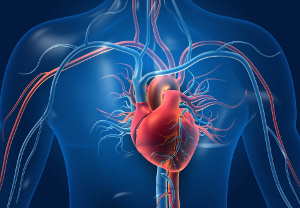 Iron is essential for oxygen transport in the blood and cellular energy production, yet deficiencies are common in patients with chronic heart failure. This additionally impairs their physical capacity and quality of life. Iron deficiency is associated with hospitalization and early death, as highlighted in a review article published by the American College of Cardiology. Heart failure patients should therefore always have their iron status checked. Intravenous iron therapy appears to be most effective for treating iron deficiency in heart failure patients. It is also crucial for these patients to ensure adequate dietary iron intake while being mindful of factors that can limit iron absorption and utilization.
Iron is essential for oxygen transport in the blood and cellular energy production, yet deficiencies are common in patients with chronic heart failure. This additionally impairs their physical capacity and quality of life. Iron deficiency is associated with hospitalization and early death, as highlighted in a review article published by the American College of Cardiology. Heart failure patients should therefore always have their iron status checked. Intravenous iron therapy appears to be most effective for treating iron deficiency in heart failure patients. It is also crucial for these patients to ensure adequate dietary iron intake while being mindful of factors that can limit iron absorption and utilization.







 Veganism is on the rise, and experts have different views on whether or not plant-diets are suited for children. A team of Polish scientists has now discovered that children on vegan diets have low stature and lower bone density than children who eat meat and dairy products. Children on vegan diets also are also more likely to lack amino acids,
Veganism is on the rise, and experts have different views on whether or not plant-diets are suited for children. A team of Polish scientists has now discovered that children on vegan diets have low stature and lower bone density than children who eat meat and dairy products. Children on vegan diets also are also more likely to lack amino acids, 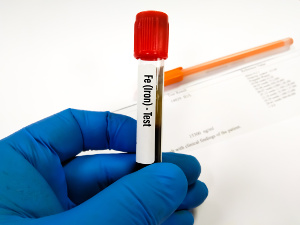 Lack of
Lack of 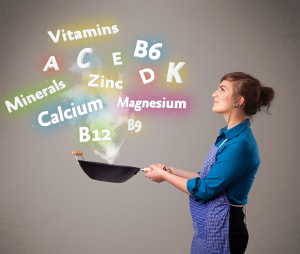 In ancient times when our ancestors hunted, they consumed every inch of the animal – from one end to another. Organ meat such as the liver, the heart, and the kidneys were delicacies that contained far more essential nutrients than other parts of the animal. In Western countries, we primarily consume muscle meat. In addition, animals often get unnatural fodder with suboptimal nutrient content. This results in deficiencies and an imbalance between amino acids and fatty acids. In the following article, you can read more about organ meats (also known as offal), bone marrow, and bone broth and their high content of essential amino acids,
In ancient times when our ancestors hunted, they consumed every inch of the animal – from one end to another. Organ meat such as the liver, the heart, and the kidneys were delicacies that contained far more essential nutrients than other parts of the animal. In Western countries, we primarily consume muscle meat. In addition, animals often get unnatural fodder with suboptimal nutrient content. This results in deficiencies and an imbalance between amino acids and fatty acids. In the following article, you can read more about organ meats (also known as offal), bone marrow, and bone broth and their high content of essential amino acids,  If you are suffering from enervating fatigue, problems with concentrating, lack of energy, paleness, shortness of breath, dizziness, cold intolerance, recurrent infections, anemia, or problems with your skin, hair, and nails, you may be lacking
If you are suffering from enervating fatigue, problems with concentrating, lack of energy, paleness, shortness of breath, dizziness, cold intolerance, recurrent infections, anemia, or problems with your skin, hair, and nails, you may be lacking  Minerals are involved in countless functions of vital importance to the immune defense. That is why lack of one or several minerals can increase your risk of infections or perhaps trigger unwanted inflammation that can damage healthy tissue. In a new review article that is published in Nutrients, a group of scientists look at magnesium, selenium, zinc, iron, and copper and their role in the immune system. They also look at the fact that vegans, older people, chronically ill, pregnant women, and elite athletes often have nutrient deficiencies that call for supplementation. The agricultural soil in Europe and many other parts of the world is selenium-depleted, which makes it challenging to get enough selenium from our diets. But it is also important not to overdose on minerals. In this article, you can read more about how to optimize your nutrient intake for your immune health.
Minerals are involved in countless functions of vital importance to the immune defense. That is why lack of one or several minerals can increase your risk of infections or perhaps trigger unwanted inflammation that can damage healthy tissue. In a new review article that is published in Nutrients, a group of scientists look at magnesium, selenium, zinc, iron, and copper and their role in the immune system. They also look at the fact that vegans, older people, chronically ill, pregnant women, and elite athletes often have nutrient deficiencies that call for supplementation. The agricultural soil in Europe and many other parts of the world is selenium-depleted, which makes it challenging to get enough selenium from our diets. But it is also important not to overdose on minerals. In this article, you can read more about how to optimize your nutrient intake for your immune health.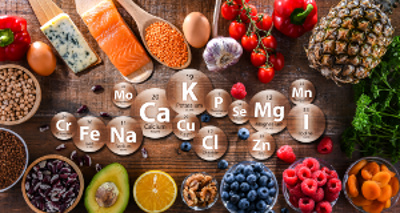
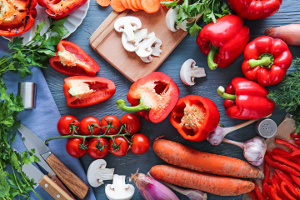 Some people prefer to eat raw vegetables in combination with meat or fish or as entirely raw vegan diets. They believe it is healthier and delivers more energy. But the truth is that some vegetables are healthier and provide more antioxidants if you heat them. That’s the case with tomatoes, bell pepper, carrots, spinach, and mushrooms. And remember that raw mushrooms contain toxins that are broken down by cooking.
Some people prefer to eat raw vegetables in combination with meat or fish or as entirely raw vegan diets. They believe it is healthier and delivers more energy. But the truth is that some vegetables are healthier and provide more antioxidants if you heat them. That’s the case with tomatoes, bell pepper, carrots, spinach, and mushrooms. And remember that raw mushrooms contain toxins that are broken down by cooking. "After about one week of taking the Q10 supplement I could feel a huge difference," says 23-year old Alan Piccini, who has been suffering from extreme fatigue and muscle aches ever since he was a child.
"After about one week of taking the Q10 supplement I could feel a huge difference," says 23-year old Alan Piccini, who has been suffering from extreme fatigue and muscle aches ever since he was a child. “Taking capsules with co-enzyme Q10 has freed me of the severe side effects of my cholesterol lowering medicine,” Mrs Franken explains.
“Taking capsules with co-enzyme Q10 has freed me of the severe side effects of my cholesterol lowering medicine,” Mrs Franken explains.